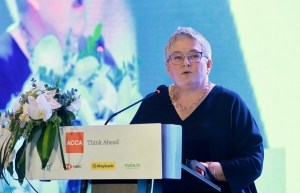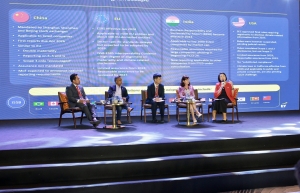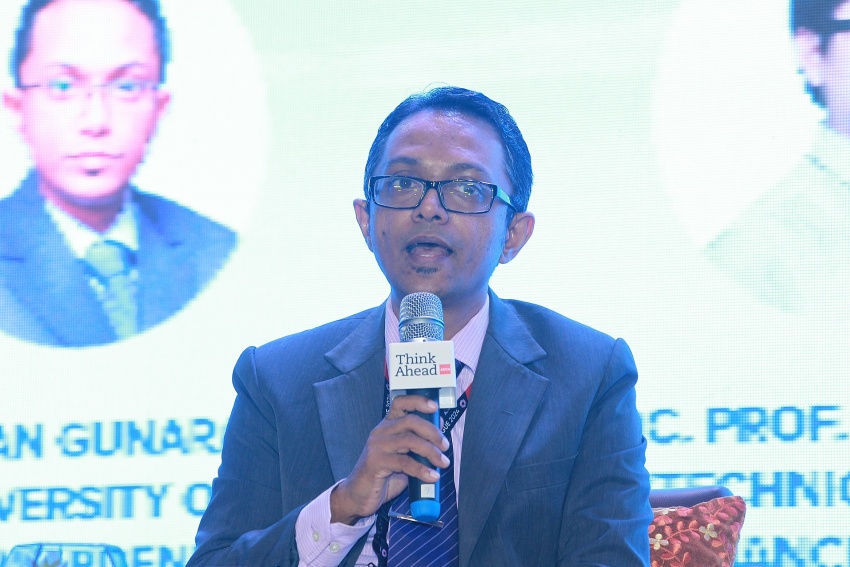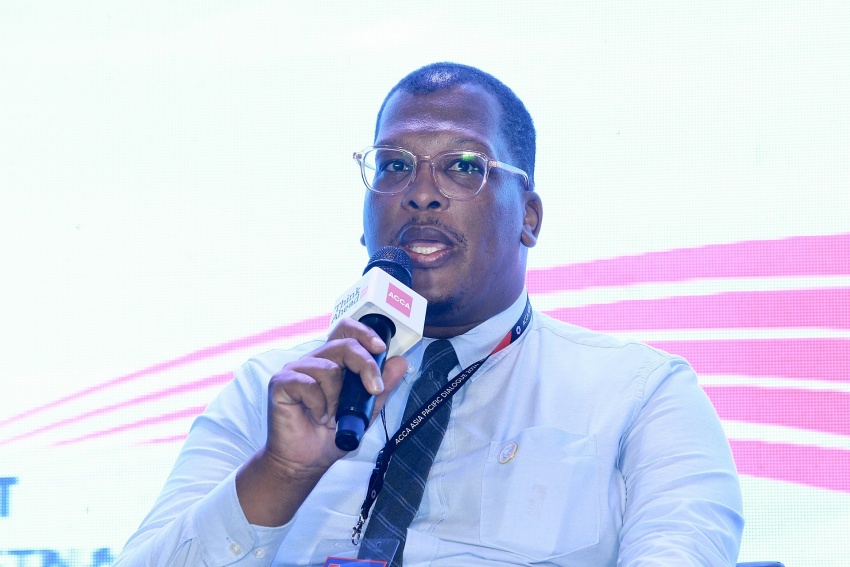AI changing teaching and learning
Generative AI and normal AI have changed the way of doing everything in schools and universities, including teaching, assessment, administrative tasks, and the way we do research. In terms of teaching now, we can create more engaging content, and also we are adopting some adaptive learning technologies in terms of teaching. When it comes to research assessment, we can provide more customised feedback, and we can automate some of these assessment tasks. We have changed the assessment mode to go for a video, which is entirely changing the assessment models because of the use of AI. To offer new knowledge or in terms of research, we actually heavily use generative AI tools. And it has actually opened up new vistas for research, especially like how to use these tools to do things that were not possible previously, especially when we're dealing with large sets of data. Or when we're dealing with some qualitative data or when we're dealing with research papers, we can use different tools, which will provide you with visual analysis and all sorts of new outputs to generate, which was not possible previously. So, that's another research area that we are embarking on to see how the students and even the academics use it, and what are the challenges because we need to understand these unknown areas to have a better future for our students. Digital literacy is one of the keys that is the most important. And apart from that, there are so many new tools emerging, so it is a continuous learning process. Continuous adaptation is another skill that we need to inculcate within students. The knowledge we have today will not be relevant in five years time, so we must adopt and foster a culture of continuous learning, which itself becomes a skill. So that's my take on the future, and what we must do. |
We have had to do a lot of thinking about how to integrate AI into our assessments. We have a policy that has five levels in it and from using no AI to fully using AI in some way in the middle where students can use AI to help them with language and stuff like that. Obviously, in an exam there won't be any AI allowed. And if it is a written assignment, I'm sure it's okay for the students to use and help them with the language as long as they mentioned that they've used this in helping them out. This goes into talking about the ethical use of AI. So we do allow our students to use AI at different levels. In terms of teaching, it has really been great to have Chat GPT for example because as academics, we don't really want to spend too much time on the lower level things, and the students can ask those questions to ChatGPT. What we use class for is more for higher-order thinking in discussions and seminars. So that way, we can develop those critical thinking skills that are needed for accountants by making use of AI. For example, year one, students need to know how to calculate ratios. But a year three students needs to be able to do a proper analysis. Now, if you have AI in the classroom, you're able to say here is the calculation that's already done by AI. Now let's spend the time and understand what has happened and do the analysis. In the past, we spent all this time with the calculations and hardly any time on the analysis. In the teaching of accounting and finance, we tend to work together with a student engagement team. Sometimes we have field trips for students. For example, they would go to a dairy farm and go find out information about the cost of a block of cheese, which is better than me sitting in class and showing them how to calculate the standard cost of a block of cheese. So, accountants are expected to do quite a lot more than what we think they do. Sustainability has become one of the things that you cannot ignore. And as accountants, we need to be at the forefront of measuring how much work we are doing in terms of sustainability. We need to teach our students a sustainability mindset. They need to know that as decision makers that whatever decisions they are taking are going to affect society in one way or another. So one of the things that we have to make sure is that as we continue in our teaching, we ensure that our students are aware of the responsibility that they bear as accountants. Student can use AI in the classroom, and we've kind of allowed students to have a bit more of a voice by creating spaces and tasks that allow the students to be able to speak up, for example, seminars and tutorials. Some students are very shy, and don't like talking in a group. So, you can use technology to get them to give their opinion using their phones. Many Gen Z students love their phones. So I use their phones in the classroom as well. Give me your answer on the phones in different platforms. |
 | ACCA APAC Dialogue 2024 set for Hanoi The ACCA APAC Dialogue 2024 event (ACCA Asia-Pacific Forum 2024) organised by the Association of Chartered Certified Accountants (ACCA) will officially take place on May 28–29 at JW Marriott Hotel Hanoi. |
 | ACCA Asia Pacific Dialogue raises conversations on a sustainable future The ACCA Asia Pacific Dialogue 2024 held in Hanoi on May 28-29 aims to foster a platform for innovative thinking and strategic dialogue among key stakeholders in the accounting and finance sector, focusing on sustainable finance, digital transformation, and regulatory developments, reflecting the most pressing trends and challenges in the region. |
 | Balancing digitalisation and greening the economy Digitalisation, if not carefully managed, could cause significant damage to sustainable development, so the deployment of new technology must go hand in hand with sustainable development principles. |
 | ACCA and VIB form a strategic partnership on human resources and business programmes The Association of Chartered Certified Accountants (ACCA) and VIB have agreed on a memorandum of understanding as part of the ACCA Asia-Pacific Forum. |
What the stars mean:
★ Poor ★ ★ Promising ★★★ Good ★★★★ Very good ★★★★★ Exceptional
 Tag:
Tag:
Related Contents
Latest News
More News
- Masan Consumer names new deputy CEO to drive foods and beverages growth (February 23, 2026 | 20:52)
- Myriad risks ahead, but ones Vietnam can confront (February 20, 2026 | 15:02)
- Vietnam making the leap into AI and semiconductors (February 20, 2026 | 09:37)
- Funding must be activated for semiconductor success (February 20, 2026 | 09:20)
- Resilience as new benchmark for smarter infrastructure (February 19, 2026 | 20:35)
- A golden time to shine within ASEAN (February 19, 2026 | 20:22)
- Vietnam’s pivotal year for advancing sustainability (February 19, 2026 | 08:44)
- Strengthening the core role of industry and trade (February 19, 2026 | 08:35)
- Future orientations for healthcare improvements (February 19, 2026 | 08:29)
- Infrastructure orientations suitable for a new chapter (February 19, 2026 | 08:15)





























 Mobile Version
Mobile Version